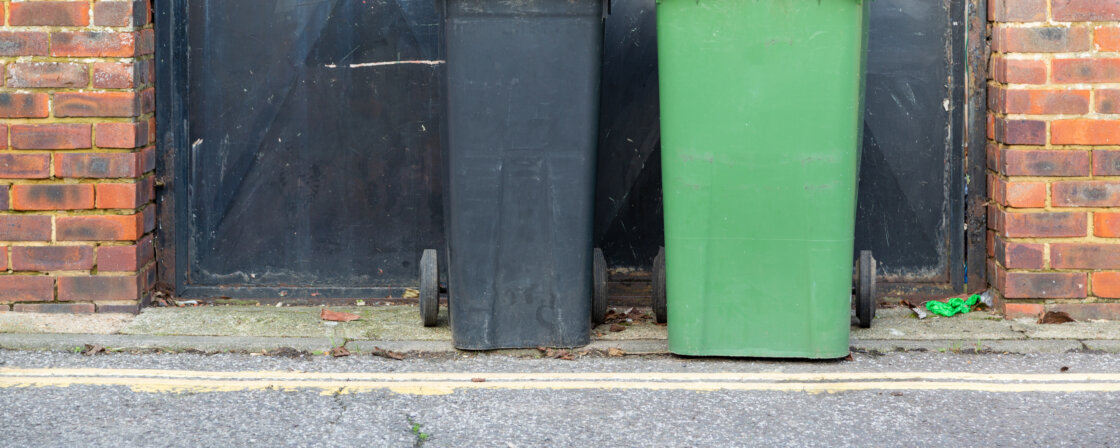Local taxes are levied by municipalities on residents or persons carrying out certain activities in the municipality. These charges are intended to cover the costs associated with the provision of local services or the use of local infrastructure. There are several types of such charges.
Charges for municipal waste
The amount of waste charges varies from municipality to municipality, depending on their budget and local conditions. Municipal waste charges are used to cover the costs associated with the entire municipal waste management process, including collection, sorting, recycling and final disposal. These fees allow municipalities to finance essential waste management services such as the operation of collection points, recycling centres, etc. As a result, municipalities are able to maintain cleanliness and public health by preventing the accumulation of waste in residential areas and public spaces.
Another important purpose of waste charges is to promote efficient waste management, which encourages waste reduction, recycling and composting. The waste charge thus contributes to sustainable waste management and reduces the negative environmental impacts of waste.
The waste charging system has changed over the years, with two methods being the most common today – a flat fee or a charge based on the quantity of waste.
Tip for article
Tip: In addition to local fees, there is a compulsory radio and TV fee. Find out who has to pay them, what they are for and how to opt in or out.
How much is paid and when?
The amount of the municipal waste charge varies from municipality to municipality and is usually set by local councils based on budgetary needs and the specifics of the local situation. However, the payment can be set uniformly, i.e. the same for all persons regardless of how much waste they generate. In this case, the maximum amount may be CZK 1 200. The second way of determining the fee is on the basis of the quantity of waste. In this case, the fee is limited to a maximum of CZK 6 per kilo of waste or per litre of waste.
Many municipalities introduce discounts on waste fees for children, the elderly or people with disabilities. In addition to the regular waste fee, municipalities can also charge additional fees for the collection of bulky waste or bio-waste.
Are you solving a similar problem?
Do you have a problem?
Is your municipality not complying with the statutory rules or abusing the payment of local taxes in any way? Do you want to take legal action and are not sure if you will win? We will assess your chances of success in court and suggest a solution that will lead to the desired outcome.
I want to help
- When you order, you know what you will get and how much it will cost.
- We handle everything online or in person at one of our 6 offices.
- We handle 8 out of 10 requests within 2 working days.
- We have specialists for every field of law.
By when to pay for municipal waste? We won’t give you a clear answer to this question either. Again, it depends on the municipality. However, you will most often find that waste is paid by the middle of the calendar year. In some places you can pay online, in others you have to send the fee by post or go to the municipality in person.
Who pays the municipal waste charge?
The waste charges are payable by people who are registered residents of the council and by people who own a residential or recreational property where no one is registered as a resident.
The municipality may decide that some people do not have to pay waste charges or pay a lower amount. This is most often the case for young children and the elderly over 70. In some cases, they also do not have to pay for properties used for recreation.
Dog tax
The main purpose of the dog tax is to cover the costs of keeping dogs in the municipality. These include, for example, the cost of maintaining public areas and facilities for dogs, such as dog runs or special bins for dog excrement. The fee also typically helps fund other dog-related services, such as dog registration, inspections for compliance with local ordinances regarding dogs in public, and prevention programs aimed at the health and safety of dogs and people.
How much is paid and when?
The amount of the fee is decided by the municipality. However, the maximum amount is set at CZK 1 500 per calendar year per dog. In the case of multiple dogs, an additional 50% of the maximum amount can be set for each additional dog (i.e. 1,500 + 2,250 crowns for two dogs, 1,500 + 2,250 + 2,250 crowns for three dogs, etc.). If you get a dog during the year, you pay the fee on a pro rata basis for all the calendar months you have owned the dog.
In our practice we have encountered the case of Mrs. Jana. She was the only one in the village with 5 dogs (the other residents had one dog at most). The fee was 300 crowns per year for each of them. However, one day she had a disagreement with the mayor and from the next year the dog tax was suddenly increased to 1500 crowns for one dog and 2250 crowns for each additional dog. This was clearly a revenge on the part of the mayor. However, Mrs. Jana did not let this happen and turned to the Affordable Advocate. We sent the mayor a pre-action notice. As a result, the mayor changed his mind about his childish behaviour and set the dog fee back to the original amount.
The repayment period depends on the municipality. However, payment is for the whole year. However, once you get a dog, you must register it with the local authority to register for the dog tax. If you have a litter, you must register it no later than 15 days after it reaches 3 months of age.
Who pays the dog tax?
The dog tax is paid by the owner of a dog that is resident in the Czech Republic. It is payable from the time the dog reaches the age of 3 months. A person who is dependent on the assistance of another natural person or holds a ZTP/P card, a person who trains assistance dogs, a person who runs a shelter and a person who has a dog for special reasons provided by law (e.g. hunters, police dog handlers, etc.) are exempt from paying the fee
Other types of fees
In addition to the municipal waste fee and the dog fee, there are a number of other fees that you probably won’t come across that often in practice. Let’s take a look at them.
Residence tax
Formerly known as the holiday and spa fee. This fee is paid by persons who do not have a permanent place of residence in the municipality, but stay in the municipality for less than 60 consecutive days. Its maximum is set at 50 crowns per person per night.
Persons with disabilities/P, blind persons dependent on the assistance of another natural person, persons under 18 years of age, persons performing seasonal work in the place and persons who are hospitalized in the village or who are taking care of children at a recovery or similar event are exempt from the fee.
Fee for the use of public spaces
This fee is paid for the so-called special use of public spaces. This includes:
- excavation work;
- the location of temporary structures and facilities for the provision of sales and services;
- the location of construction or advertising facilities, circuses, amusement parks and other similar attractions;
- the location of landfills;
- the reservation of permanent parking space and the use of such space for cultural, sporting and advertising events or the needs of film and television production.
The fee does not apply to charitable and public benefit events.
The maximum amount of the fee is set at CZK 10 per square metre of public space used per day. In the case of the placement of sales or advertising facilities, amusement parks and other attractions, the maximum fee is set at up to 100 crowns.
Entrance fee
The admission fee is levied on admission to cultural, sporting, sales or advertising events. The fee does not apply to charity and public benefit events. The rate of the admission charge may be up to 20% of the total amount collected.
Motor vehicle entry permit fee
This fee is payable by a person who has been issued with a permit to enter with a motor vehicle into selected places and parts of towns where entry is otherwise prohibited. The maximum amount of the fee is set at CZK 200 for each day.
The fee is not payable by natural persons permanently residing in the municipality, persons who own real estate in the municipality, their close persons, spouses of such persons and their children. In addition, persons who use real estate in the selected place for business or public utility activities or persons who hold a ZTP or ZTP/P card and their guides do not pay.
Fee for building land appreciation
The building land assessment fee relates to the possibility of connecting the building land to a water supply or sewerage system. It is therefore only payable by the owner of a building plot which has the possibility of being connected to a municipally constructed water or sewerage system. The fee must not exceed the difference between the price of the building plot without the possibility of connection and the price of the building plot with this possibility.
Tip for article
Tip: Planning to buy a property? We’ll guide you through the whole process and check contracts thoroughly so you don’t sign up for something you might regret later.




